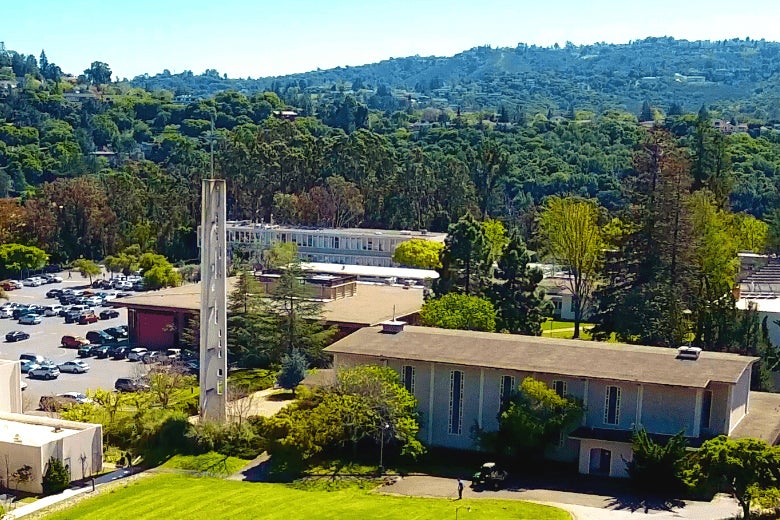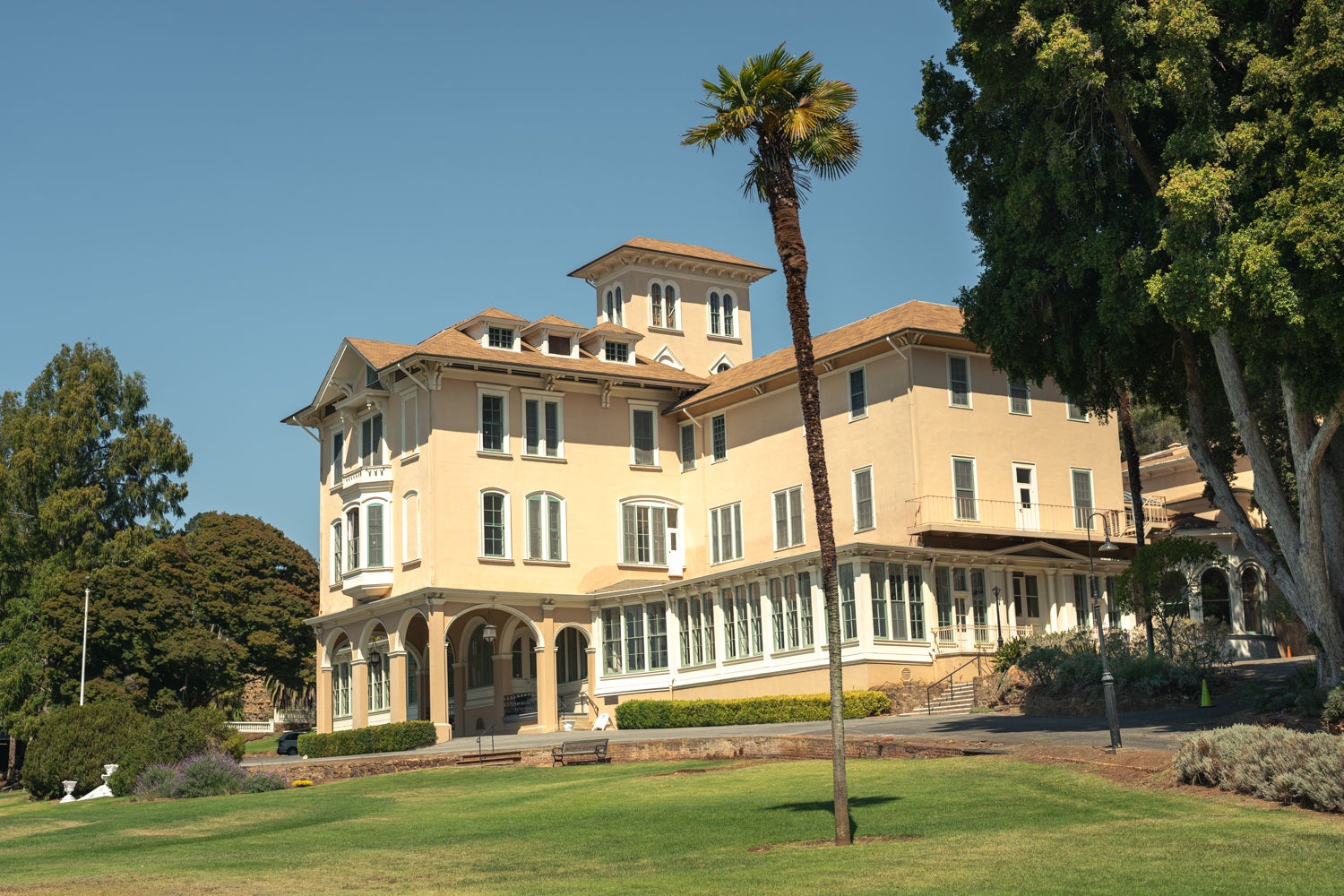Stanford’s plans to potentially acquire and revitalize the Notre Dame de Namur University (NDNU) campus in Belmont took an important step forward with the City of Belmont’s recent release of the Draft Environmental Impact Report (DEIR) that analyzes Stanford’s redevelopment plans. The report finds that Stanford’s project will have no adverse environmental impacts after the proposed mitigations.
The university is also actively working with city staff on a package of community benefits for the project that will be included as part of the project application that will ultimately be considered by the City Council.
Stanford entered into an agreement with NDNU to work toward Stanford’s purchase of NDNU’s campus in September 2021. The agreement, which provides Stanford with the option to purchase the property through June 2025, is designed to support the academic missions of both universities. NDNU is independently pursuing a vision where it is transitioning to offering graduate programs and undergraduate degree-completion programs, a shift that led to the university’s decision to sell its campus.
A year later, Stanford submitted an application to the City of Belmont for a Conceptual Development Plan (CDP) for the NDNU campus property. Stanford’s long-term plans for the campus include 700,000 total square feet of space for academic uses and housing related to campus use, an increase of 265,000 square feet over what the city previously approved for the site, over a 30-year development period. A minimum of 50 housing units would be created for Stanford affiliates, and up to 200, depending on programmatic needs.
“We were very thoughtful in our preliminary design process to craft an application that had minimal impacts, and the EIR reflects that effort,” said Steve Elliott, senior managing director for real estate development. “Stanford plans to operate a future campus at a similar level to that of NDNU in 2013, so Stanford will not be increasing the intensity of activity on the campus from when it was last being fully utilized.”
On traffic along Ralston Avenue, a topic of particular interest to the Belmont community, the environmental report has encouraging findings.
Stanford’s plans would not add additional traffic to Ralston Avenue, the main thoroughfare that serves the campus, over what NDNU generated when it was fully enrolled. Stanford plans to carry over its existing successful sustainable transportation program to a future Belmont campus.
The release of the DEIR begins a 45-day public comment period on the document, after which the city and its consultants will develop responses to the comments as part of the final version of the report. The Belmont Planning Commission will hold a public hearing on Aug. 20 at 7 p.m. to accept public comment in person. The final EIR will be released in advance of Planning Commission and City Council hearings on the Conceptual Development Plan that are anticipated next spring.
Community benefits
As part of its CDP application, Stanford proposed a set of community benefits focused on restoring historic Ralston Mansion, maintaining community use of Koret Field, improving transportation along the Ralston Avenue corridor, and establishing a local educational initiative. The proposed benefits reflect feedback from the community gathered during a yearlong outreach effort.
The Stanford project team has been in discussions with city staff since the CDP application was filed to refine the community benefits package, and recently presented a joint preliminary agreement to the City Council that includes:
A contribution toward the Belmont Community Center
Discretionary funds for Belmont to enhance city services
Funding for Ralston Avenue transportation improvements
Community use of Ralston Mansion after the building, which is currently uninhabitable, has been renovated
Community use of Koret Field
At least 20% of new non-student housing will be below market rate affordable housing
Funding for TK-12 education programs and tuition grants for city staff to participate in Stanford Executive Education courses
Stanford will pay Belmont’s development fees
The Belmont City Council will make the final determination on the community benefits package as part of its consideration of Stanford’s application.
More information about the potential Stanford Belmont campus, including the CDP application and presentations from past community events, is available at belmont.stanford.edu.
Media contact:
Joel Berman, University Communications: (650) 208-8819, joelberman@stanford.edu

